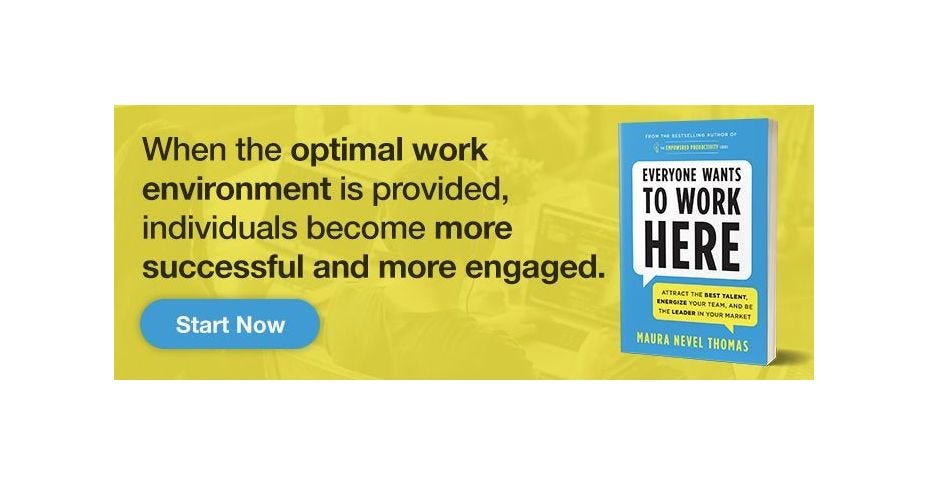In many companies, speed of response time is a success metric not only for customer service teams, but for all teams. Based on my work with thousands of leaders over the past two decades, I can tell you that when your team members respond faster, it certainly doesn’t mean they are providing better responses to either internal or external stakeholders.
If you’re looking to maximize your team’s productivity, I’d urge you to consider how operating at breakneck speed around the clock harms not only your people, but also your bottom line. There’s a big difference between fast employees and responsive employees. With that in mind, let’s take a look at why leaders who value speed over quality may inadvertently undermine productivity.
1. You are leaving a competitive advantage on the table.
Speed is not a competitive advantage. You can urge your employees to work faster (and work more), but your competitors are doing the same. While delivering the quickest responses won’t differentiate your team in the marketplace—anyone can be fast)—it will burn out your team members.
What if instead, you set reasonable expectations, such as with autoresponders, and supported your workers to respond to queries in the most thoughtful, empathetic and thorough manner possible? In a world in which everyone is dashing off whatever comes to mind in seconds, your workforce would certainly stand out for truly being responsive. Better yet, your team would build true connections with internal and external stakeholders alike.
2. Your employees are busy but not productive.
In a culture of urgency, most employees multitask in an effort to respond to all the incoming messaging and information. The problem with multitasking, though, is that it’s really task switching, and research shows that quickly shifting from one task to another and back again is devastating to productivity. We are more likely to make mistakes. When we switch focus, we considerably slow our progress. Worse, frantic and frazzled, we don’t feel great about the quality of our work—at the end of the day we feel busy but not productive, a feeling that is highly demotivating.
3. Your workforce is more likely to burnout
Workers who feel busy but not productive are on the path to burning out, which is not only a serious problem for the individual employee, but also for your company. Employees who feel burned out are likely to disengage from work, “quiet quit,” or actually leave the job.
The problem here is that it costs you significantly more to replace an employee who leaves. In fact, a Gallup study found that replacing workers requires one-half to two times an employee’s annual salary. If your workforce has an average annual salary of $50,000, it costs $9,000 a year to keep each disengaged worker and between $25,000 and $100,000 to replace them.
Compounding the damage, when workers feel that your company doesn’t provide work-life balance, your company’s reputation capital may take a hit, making it harder to attract star players and retain them.
4. You are squandering your reputation capital
Reputation capital is the good name your company has developed out in the world over the years. If you have reputation capital to spend, but you require your team members to answer all incoming messages quickly rather than thoughtfully, then you are squandering this precious resource.
In our digital age, a potential customer has already done their homework before reaching out to you. Either they were referred by a current customer of yours or they’ve done research online. By the time they decide to contact you, they are more than halfway to a decision.
This means if your customer service agents don’t reply to incoming queries immediately, potential customers are willing to wait a reasonable amount of time—especially if you set their expectations properly— because they’ve already decided that they want to work with you.
When you provide all team members—even customer-facing teams–with the “breathing room” to truly focus their attention on delivering quality work rather than speedy work, your customers will notice and your company will further build its reputation capital.
5. You’re wasting a lot of money.
Is your team actively working to combat a culture of urgency, by slowing down the pace and allowing workers to focus fully on their task? If not, then you’re cultivating a culture that courts distractions and this is costly for your company.
Just how costly?
A company that has 55 employees with an average salary of $50,000 annually, will pay $1,065,900 per year for lost productivity due to distraction. And this is a conservative estimate that only considers the direct costs of distractions.
What’s the Solution?
You may think there’s no way to slow down the culture of urgency at your company without losing customers or hurting the bottom line. But I assure you that this is short-term thinking.
If you want to create a culture where everyone wants to work, and a business positioned to perform optimally, then dismantling a culture of urgency is an important step in the process toward long-term improvement. Read my book Everyone Wants to Work Here for more details on how to accomplish this.
- Maura Nevel Thomas, author of Everyone Wants to Work Here

